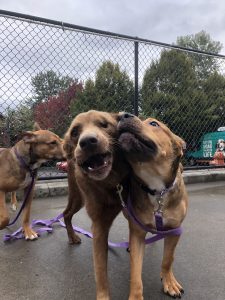 What do you do when you need to leave home and your dog can’t come with you? Choosing the right boarding facility or pet sitter for your dog is key for a stress-free trip! Whether your dog will be staying at home with a sitter or going to a boarding facility, try to pick an option that will mimic your pet’s daily life.
What do you do when you need to leave home and your dog can’t come with you? Choosing the right boarding facility or pet sitter for your dog is key for a stress-free trip! Whether your dog will be staying at home with a sitter or going to a boarding facility, try to pick an option that will mimic your pet’s daily life.
Boarding Facilities and Doggie Daycares
If your dog enjoys socializing with people and other dogs, consider using a doggie daycare or boarding facility. When searching for a facility, don’t just pick the most convenient place! Think about what your dog likes to do and find a facility that meets her needs.
Key items to consider:
- Does your dog enjoy playing with other dogs? Napping on the couch? Nature walks? Swimming? Playtime with toys or fetch? Is an indoor-only space okay for your pup or do they like having access to the outdoors?
- Does your dog like to lounge around on plush beds in open spaces with the group? Do they prefer cooler, hardwoods floors or the safe sanctuary of a kennel while resting?
- The needs of each dog will be different. Decide what your minimum requirements are and what items can or can’t be compromised. This should be a vacation for your pet too!
 Once you’ve found a potential facility, take a tour and ask questions:
Once you’ve found a potential facility, take a tour and ask questions:
How clean is it? It’s a place that houses dogs, so your expectations should be realistic; however, the facility should still be well maintained both inside and out.
Are there screening requirements for dogs? There should be! Staff should be looking for vaccinations, health concerns, favorite activities, personality, and social history.
How do you decide what my dog will do during his time here? The facility should take your recommendations into consideration. They should also be able to recognize the comfort level of your dog and make decisions based on what they are seeing.
What is the staff-to-dog ratio during off-leash play? Dogs should be 100% supervised in person, not just through a video screen. No more than 10-15 dogs per person. This number can vary based on size and temperament of dogs or experience of staff member running play time.
What are training requirements for staff? Look for facilities that offer education for employees through books and seminars, not just on the job training. Staff members managing off-leash and group activities should have more training than those managing the front desk.
Is continuing education available for employees? There’s always more to learn about dog behavior and you’ll want to look for a business that makes education a priority.
When will my dog be left unsupervised? Dogs should never be left unsupervised while off-leash with other dogs. Many boarding facilities will leave dogs alone at night while they are housed separately.
How do you discipline the dogs? Look for places that will redirect your dogs to more appropriate choices or provide time outs away from the group, not facilities that provide “physical corrections.” Many facilities will keep spray bottles on the floor or with employees. This can be an important tool – but make sure that the bottles are filled with water and only being used by properly trained staff members.
Not all dogs want to play with others. Some like to be social, but only in smaller numbers and can get overwhelmed in large group environments. An educated staff should be able to recognize what play style will be best for your dog and will help facilitate that play so everyone is having the best time possible. You want your dog to be just as excited to return to their boarding facility as you are to go on your next vacation!
Pet Sitters
 Dogs that need to stick to a routine or get overwhelmed by lots of new people, animals and activity may do best with a pet sitter who comes to your home. Your dog will feel more comfortable in his own home and you won’t have to stress about changing his schedule.
Dogs that need to stick to a routine or get overwhelmed by lots of new people, animals and activity may do best with a pet sitter who comes to your home. Your dog will feel more comfortable in his own home and you won’t have to stress about changing his schedule.
When choosing a sitter, be clear and up front about your dog’s daily activities:
- What time does your dog eat/take medication?
- What’s the bathroom schedule?
- How much exercise does your pet typically get?
- Is fetch in the yard enough exercise or does your pup need a long walk twice a day?
- Find out how much time your pet sitter will spend away from your home each day. Try to keep hours as close to your normal routine as possible, particularly if your dog is on medication.
 Board and Train Services
Board and Train Services
If you have a dog with special training needs, a board and train program with a professional dog trainer could be your best option. Questions to ask potential trainers:
What are your training methods? Look for trainers who are using the same training tools and positive reinforcement methods you’re already employing with your dog and remember to read the fine print before you sign anything.
Can you teach me too? Find a board and train operation that will show you how they are training your dog so that you’re able to continue that progress once you’re back home together.
Do you accept reactive dogs? Many households with reactive dogs choose to utilize board and train services with professional trainers because it helps maintain the work they’ve already done with their dog.
Do you accept puppies? Puppies require a lot of extra attention and care. You may find a board and train location to be the most efficient way to ensure that your pup is getting all his needs met while still maintaining and even helping his progress to being a well-manned adult dog.
Board and Train facilities do not take your challenging dog and return a perfect one to you. The expectation should be that they find a training plan that is effective for your dog and help you and your dog work on the training together or that they help maintain and progress the training you’re already doing with your dog.
Don’t forget the legal side!
Ensure that anyone you are working with is licensed and insured. Operations larger than a single person should also be bonded.
Whatever option works for your household, it’s important to have back-up plan. Talk to your pet’s caregiver about their emergency plans for different scenarios or what happens if you are delayed in your return home.



